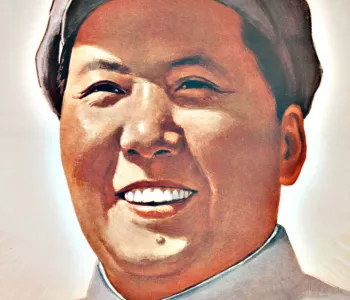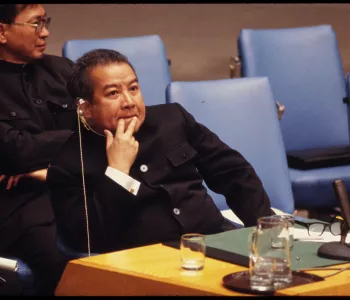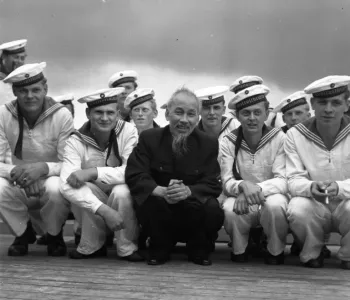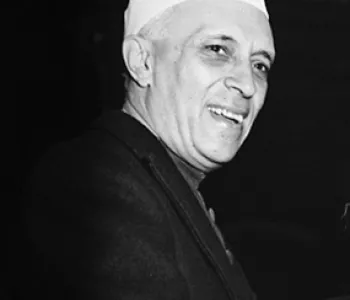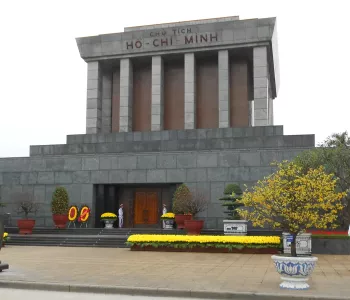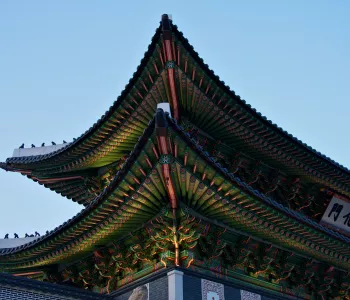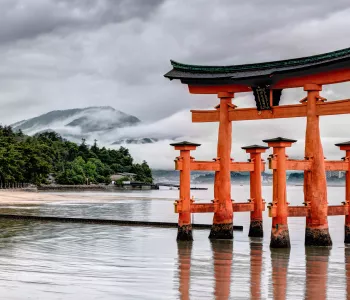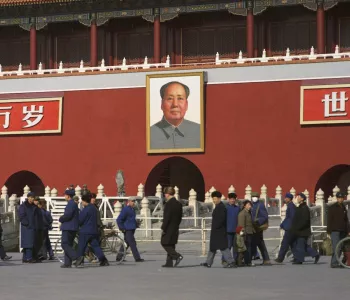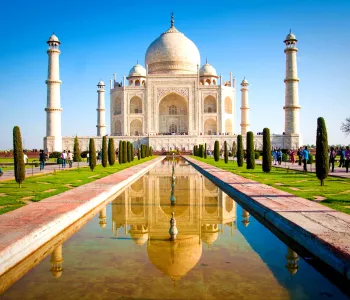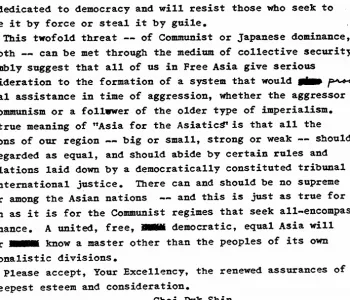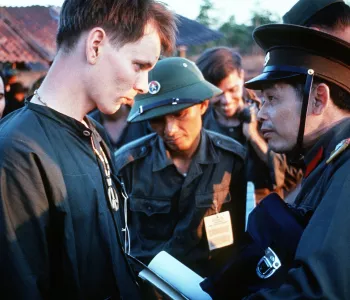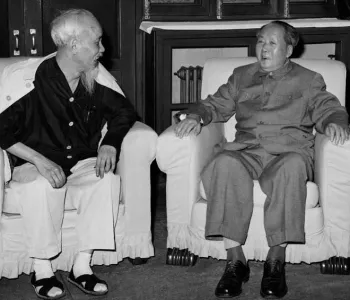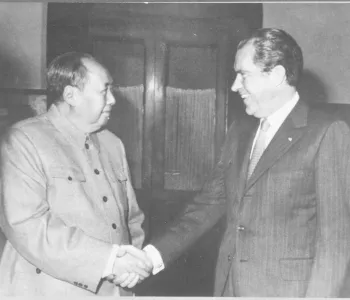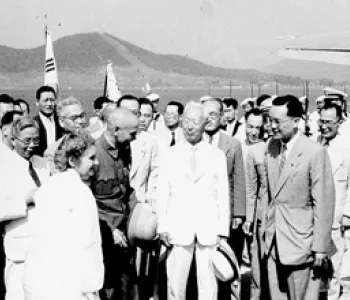Ngo Dinh Diem was born into an aristocratic, Roman Catholic family with close ties to the Emperor. He served in Emperor Bao Dai's administration under French colonial rule until 1933. During and after World War II, he opposed both French colonial rule and the communist-led national independence movement. Already staunchly anticommunist, he rejected an offer to serve in Ho Chi Minh's brief postwar government in 1945. As independence forces battled the French, he spent several years in exile, making political contacts and gaining crucial American support in hopes of leading a postwar government. One chronicler dubbed Ngo "the last Confucian," who believed that Vietnam needed the benevolent, authoritarian rule of enlightened elites.
He became prime minister of South Vietnam in 1954 just as the defeated French forces left. The peace accord called for elections in 1956 and unification of the divided country. With American support, Ngo cancelled the elections, knowing full well that Ho Chi Minh would have easily won the presidency.
Over the next seven years, he presided over an increasingly corrupt and repressive regime. Communist guerrillas backed by North Vietnam launched a new rebellion, but a civil disobedience campaign led by the country's Buddhist monks contributed more directly to his downfall. Brutal persecution of the dissident monks in 1963 damaged the regime's already shaky international reputation. With American support, Vietnamese generals overthrew and assassinated Ngo later that year.

